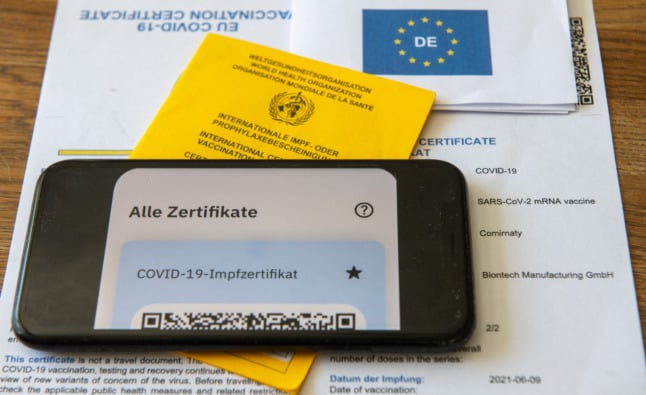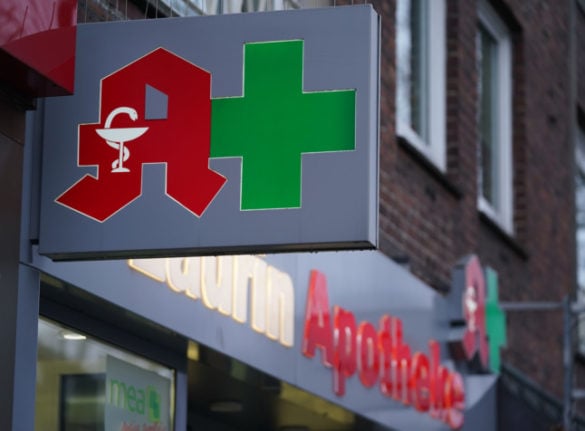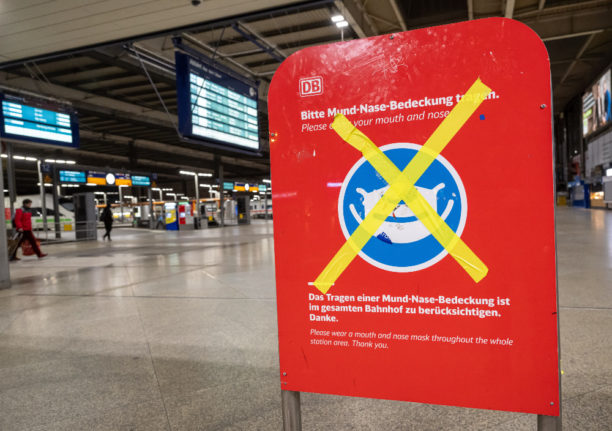What’s going on?
At the start of January, the Robert Koch Institute (RKI) announced that Covid recovery certificates would only be valid for 90 days (three months), rather than the previous 180 days (six months). The move was a significant one as it meant that many people who were relying on their certificates to enter 2G venues (i.e. vaccinated and recovered only) or 3G venues (for which you need a certificate of vaccination, recovery or a negative test) suddenly no longer counted as ‘recovered’ in the eyes of the authorities.
Amid significant push-back against the rules, the government made things even worse for itself by giving parliamentarians an exception to the rule. Though the vast majority of people were faced with a strict 90-day expiry date on their proof of recovery, MPs were allowed to continue using their certificates for up to six months to enter the debating chamber of the Bundestag building.
READ ALSO:
- German parliament ‘granted exemption’ to keep six months Covid recovery status
- Covid ‘recovered’ status only valid for three months, says German Health Ministry
To add to the confusion, EU regulations state that recovery certificates can be used for up 180 days – or roughly six months – for the purpose of travel between member states.
According to the Deutsche Apotheker Zeitung, German pharmacies had assumed that the 90-day period applied to everyone who had recovered from Covid. But a recent update to the RKI website reveals that different rules in fact apply to different people (and not only if they work in the German Bundestag). Here’s what’s going on.
So what rules apply to unvaccinated people?
For people who haven’t received a single dose of Covid vaccine, the 90-day expiry date still applies. A bulletin issued last Friday by the Federal Administrative Services Agency (FASA) explains: “With the update of the RKI website, it has been clarified that the limitation of the validity of the recovery certificates to 90 days only concerns persons who were not vaccinated before and after the infection.”
That means that the unvaccinated will only be able to get a recovery certificate issued up to three months after their positive PCR test. After this, they won’t have access to 2G venues unless they are infected again or choose to get vaccinated, and will need a negative Covid test to enter 3G venues like the workplace or public transport.
One option for this group to protect their status is to get a first Covid jab three months after their recovery, which would then mean they count as fully vaccinated.
And what should vaccinated people expect?
As the FASA bulletin makes clear, the previous 180 day expiry date still applies to vaccinated people, regardless of whether the infection was before or after their Covid jab. So, for instance, if someone had their first or second shot of vaccine in September and then had a Covid infection in November, their recovery status would still be valid for a further three months, during which time they could get a further dose of vaccine.
The same applies to all vaccinated people, including those who have had a booster jab. This entire group can obtain a vaccination certificate from a pharmacy up to six months after their infection, and it will be valid up 180 days after the date of their positive PCR test.
READ ALSO: ANALYSIS: Are Germany’s Covid rule changes backed up by science?
What else do I need to know?
Though the myriad of rules may be confusing, there’s one firm rule that applies to everyone: a recovery certificate does not allow people to get into 2G or 3G venues straight away. The certificates only become valid 28 days after the date of the positive PCR test, when the body is believed to have created the necessary antibodies for increased Covid immunity.
Currently, people have to wait around three months after their full course of jabs (known as the ‘basic immunisation’) to get a booster in Germany. A similar rule applies to those who have had a Covid infection. This group has to wait three months after their positive test to get an additional jab if they want one.
It’s also important to note that there are some important differences between EU and German rules when it comes to the expiry date of vaccination certificates.

According to the latest EU regulations, fully vaccinated people can travel freely around different member states for up to 270 days, or nine months, without a negative test. As we mentioned, recovery certificates last up to six months for travel within the EU, which is why these certificates are always valid for up to 180 days when uploaded to the CovPass app as an EU recovery certificate.
READ ALSO: EU countries agree to simplify travel rules with Covid certificates
So, for example, if someone was double-vaccinated and then contracted Covid, their recovery certificate would last up to six months and their vaccination status would last up to nine months for the purposes of EU travel.
If they got vaccinated more than three months before their Covid infection and weren’t planning on getting a booster, it would then make sense to use the recovery certificate for travel as this would last longer than the vaccination. They could then get a booster in their own time.
Under current EU rules, there is no expiry date for the status of people who have had a booster jab.
Do I need to get a new recovery certificate?
Not necessarily, but it could be advisable – especially if new virus variants emerge in spring and lead to further restrictions on public life.
It is therefore a good idea to get a recovery certificate uploaded to the CovPass app, where (as an EU certificate) it will be valid for travel through the bloc for up to 180 days.
According to DAZ, pharmacies had previously assumed that the 90-day recovery rule applied to everyone whether they had been vaccinated or not, so some vaccinated people may find they have a three-month certificate rather than a six-month one.
If this has happened to you, it’s worth asking at the pharmacy for a new proof with a longer validity. A randomised survey carried out recently suggested that pharmacies in Munich, Cologne, Berlin and Stuttgart are again issuing convalescent certificates with a validity of 180 days for vaccinated people. This is likely to be the case throughout Germany.



 Please whitelist us to continue reading.
Please whitelist us to continue reading.
Member comments